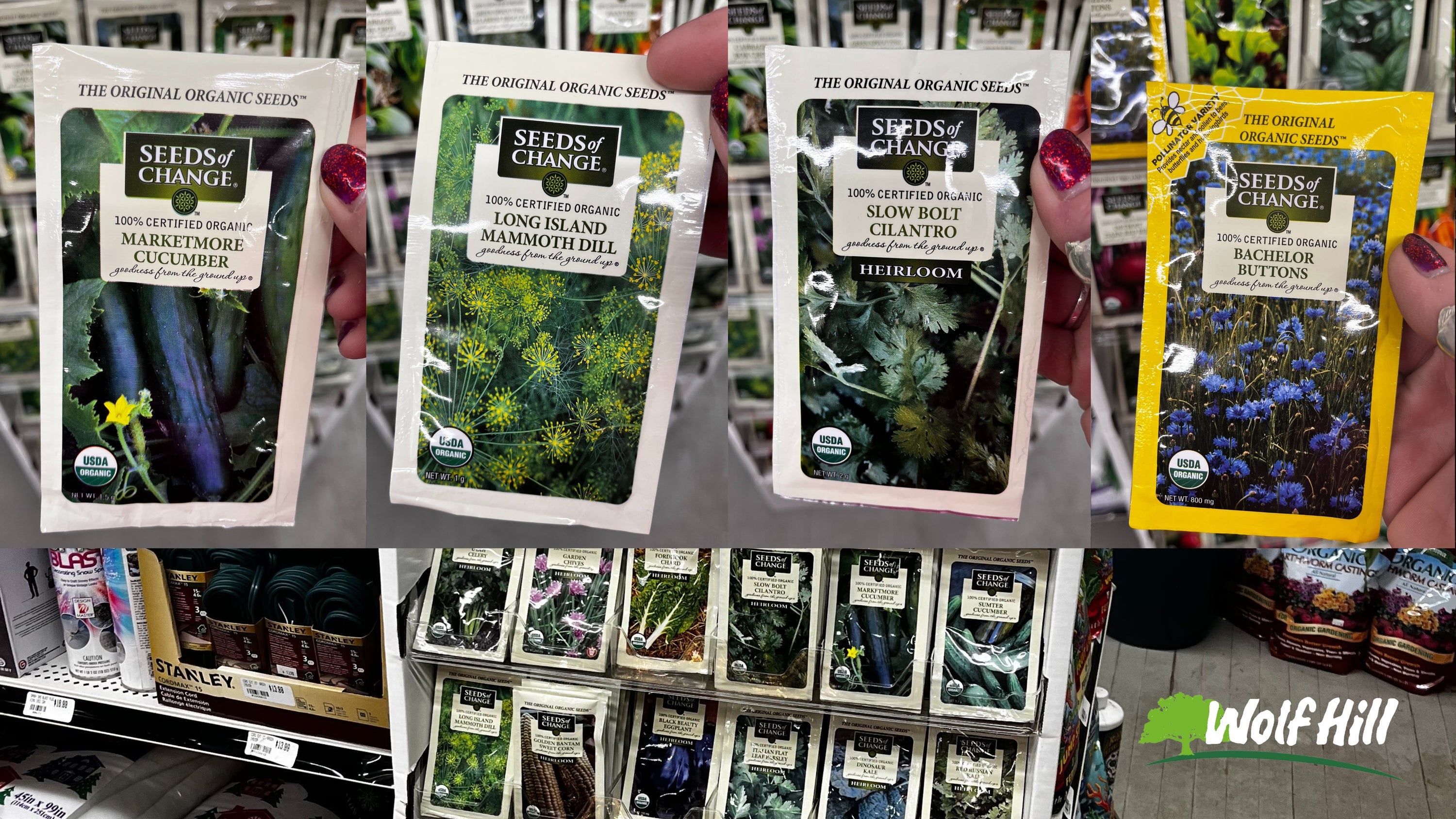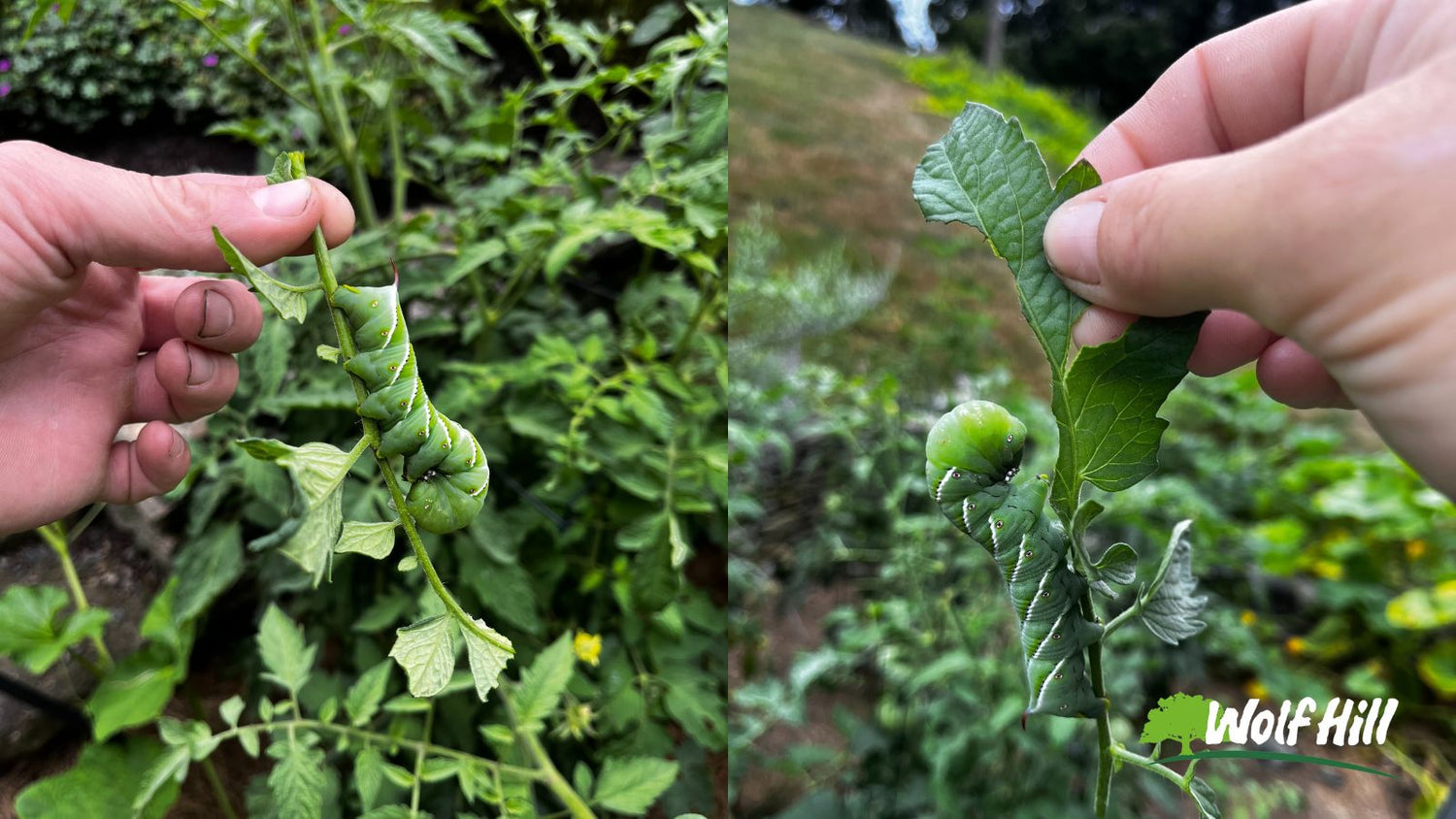Written by Jackie Panek, Annuals & Perennials Manager
I know Christmas is right around the corner, but we've had a lot of customers and employees excited for SPRING!
Our USA grown and packaged Non-GMO and organic seeds from one of my favorite brands, Seeds of Change, just arrived this morning.
Besides being certified organic, Non-GMO, and grown right here in the USA, I really appreciate how they pack the seeds. Seeds of Change uses a vacuum sealed weather-proof pouch to retain the vitality and germination rate of the seeds for much longer than a paper pouch. I like that if they get a little wet, it won't ruin the packaging for multiple seasons of use.
I'd like to highlight a few of my favorites that go into my garden each spring.
Six years ago when I very first started working at Wolf Hill, I humbly dispersed some Bachelor Button seeds throughout my 10'x10' garden bed. I've never had to plant them again! Each spring, the grayish-blue foliage pops up here and there between growing garlic stalks and heads of lettuce. I mostly let them stay where they've decided to re-seed, as they don't pose much competition between other veggies and flowers I've planted. Some will get pulled up and potted to share with friends. Even this spring after tearing apart the rotten boards and expanding our garden bed with a rebuild and fresh soil, I was still delighted with Bachelor Button seedlings making their way into the new raised bed. The bright blue flowers are a favorite of bees, butterflies, hummingbirds, and myself! The flowers are edible and really pretty sprinkled on top of a salad or frozen into ice cubes for Summer strawberry lemonade.
One of my tried and true favorites is the Marketmore cucumber. Over the years I have tried many varieties of cucumbers and this one in particular has stood out because of its prolific nature, disease resistance, and uniformly sized fruit. Cucumbers are best grown from seed straight into the soil after all threat of frost has passed- this is usually around late May to early June at my house, depending on the weather. They really love the heat to grow, so starting them later is always a good idea. No shame in purchasing starter plants for cukes, I just prefer to go from seed for this plant.
Another plant that really thrives when it gets its start straight from seed in the garden is CILANTRO! I have many customers in the Spring who look for starter plants of this controversial herb and if we happen to be out of stock, I try to share how easily it comes up from seed. Cilantro can germinate in cooler temperatures and grows well while the days are still warming and the nights are still chilly, so this can be planted in early Spring to scratch that gardening itch. It's very gratifying when you see your cilantro seedlings pop through the soil; usually within five days! I enjoy cilantro early in the season mixed with celery, apples, ginger, and oranges with lemon to make a hydrating green juice and I LOVE harvesting the seeds later in the season to use as coriander while pickling my Marketmore cukes.
At Wolf Hill Garden Center, we have been dedicated over the past few years to sourcing beneficial nectar providing and Native plants to help out our pollinator friends. An easy and inexpensive way that our customers and employees can get in on the nourishment is to plant fool proof herbs like dill and fennel. They come up just as easily as cilantro, and all are beneficial to all the insects that visit my garden. Fennel and dill are a host plant for Black Swallowtail caterpillars, and I have had healthy populations in my garden for the past five years. I have never planted fern leaf fennel in my yard; it hopped over the fence from my neighbors' yard! I do pull the little seedlings that now pop up among my Bachelor Button, as fennel grows enormously in one season and I do fine with one plant; no need for a full bed of 'em! The fennel that stays easily hosts dozens of Black Swallowtail caterpillars each season. The Mammoth Dill is also a culinary favorite at my house with the tender young leaves used in salads, dressings, and dips (or straight onto a sandwich) and the seeds being harvested for more pickling of green beans and garlic scapes. These tender-leaved herbs are so vital and nourishing to young caterpillars and so delicious to use for yourself, as well.
Happy Winter Solstice to all of our Wolf Hill friends and family! We'll see you in the Spring :)





